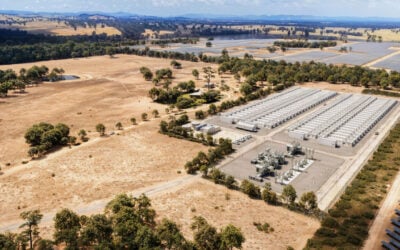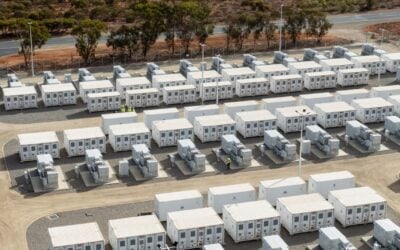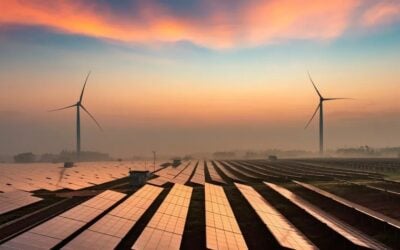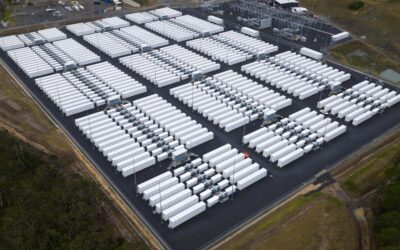ABB’s ENVILINE system: Credit: ABB
Swiss-headquartered power and automation specialist ABB has been awarded a contract by Baltimore-based utility Constellation, to manufacture seven ENVILINE energy storage systems that store train braking energy using lithium-ion batteries from battery manufacturer Saft America.
The storage systems will harness energy from braking trains on the Southeastern Pennsylvania Transportation Authority (SEPTA) train network. When a train brakes, its kinetic energy is converted to electricity and returned to the traction power line, however, an ENVILINE storage system can recover this surplus energy for reuse during acceleration. This can help lower energy use by up to 30% and reduce peak power consumption for the train operator. Furthermore it can stabilise the voltage to improve acceleration as well as providing emergency traction power.
When combined, the ABB systems will also be able to provide 8.75MW of frequency regulation capabilities, to be used on the PJM Interconnection grid in the eastern US.
The PJM grid particularly has been cited as a strong example of where frequency regulation services provided by energy storage systems have been used to great effect in the US. Frequency regulation is used to match the generation of electricity with its consumption. Under pay-for-performance rules, providers of frequency regulation are rewarded for providing fast, precise, and accurate power to the system operator for balancing generation and load.
Try Premium for just $1
- Full premium access for the first month at only $1
- Converts to an annual rate after 30 days unless cancelled
- Cancel anytime during the trial period
Premium Benefits
- Expert industry analysis and interviews
- Digital access to PV Tech Power journal
- Exclusive event discounts
Or get the full Premium subscription right away
Or continue reading this article for free
An ABB statement said that its energy storage systems can come with either super capacitors for short-term storage and recovery of the braking energy or with batteries to provide grid support services for local distribution companies.
The project will be financed via a 20-year battery services agreement with Constellation, which is a subsidiary of major US energy provider Exelon.
The storage systems will be designed and manufactured in North America and the units are scheduled for delivery before the end of this year.
Saft, which is providing the batteries, was also selected in 2011 by Viridity Energy to provide its lithium-ion batteries for a similar project with SEPTA.
Derek Monk, general manager, DMPC, ABB in Canada, said: “Transit authorities across North America are faced with increased energy costs and pressure to achieve sustainability objectives. ABB’s ENVILINE energy storage systems for DC rail transportation is an effective and economical solution that addresses these issues. ABB has a long and successful presence in DC traction power and is proud to be a leader in the transformation and modernisation of train networks such as that of SEPTA.”
ABB now has 15MW of operational train braking recovery systems.
SEPTA mainline train bound for Philadelphia, photographed in 2006. The grid-balancing lithium-ion brakes are part of the “transformation and modernisation” of train networks, ABB’s Derek Monk said. Image: wikimedia user: Adam E. Moreira





